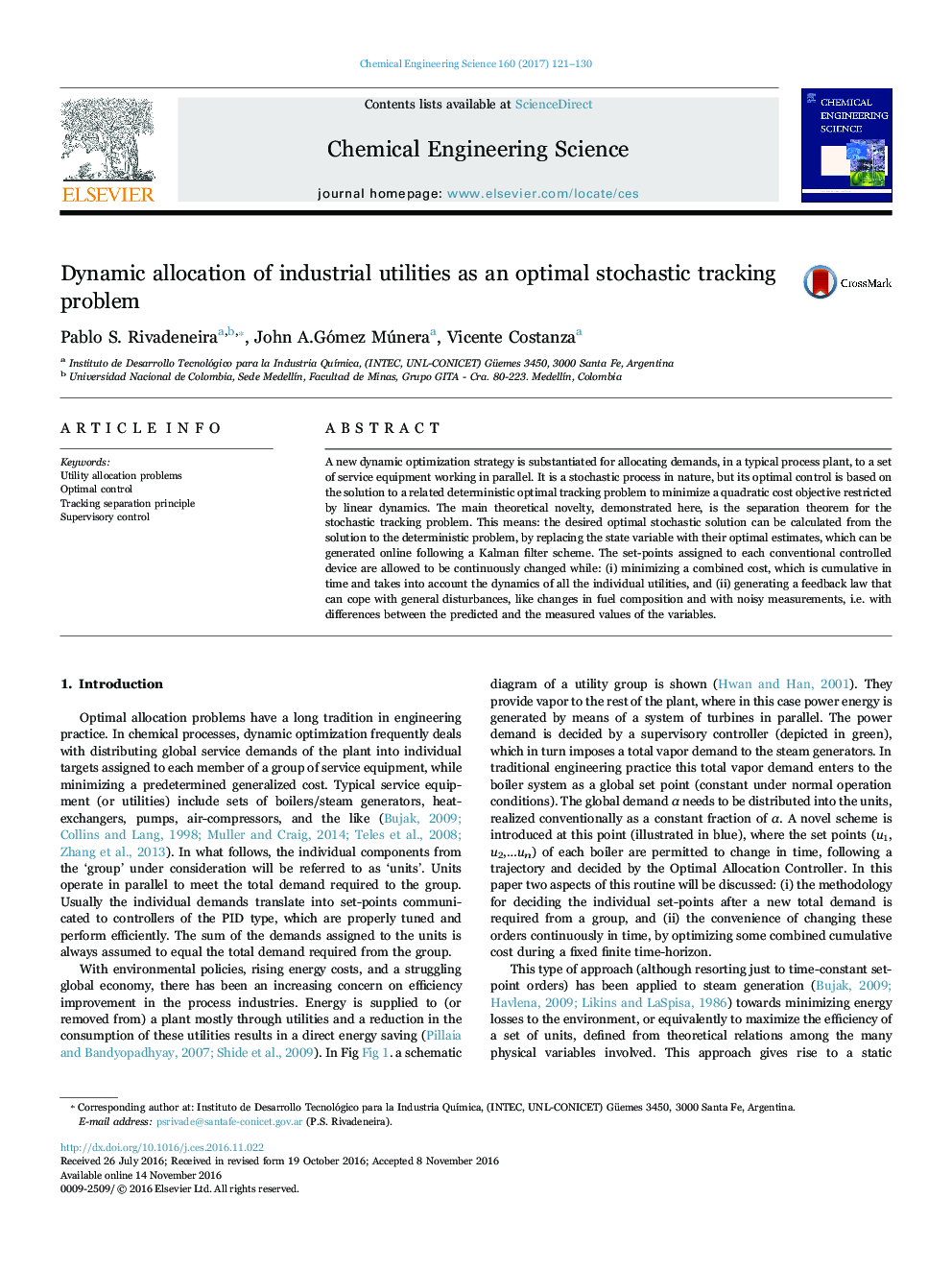| Article ID | Journal | Published Year | Pages | File Type |
|---|---|---|---|---|
| 6467696 | Chemical Engineering Science | 2017 | 10 Pages |
â¢A new dynamic optimization strategy for groups of utility units is substantiated.â¢The allocation problem is converted to a linear tracking control problem.â¢Control coefficients do not need to be recalculated after changes in total demand.â¢Disturbances are optimally handled (in the stochastic least-squares sense).â¢The Separation Principle for the Stochastic LQ Tracking problem is demonstrated.
A new dynamic optimization strategy is substantiated for allocating demands, in a typical process plant, to a set of service equipment working in parallel. It is a stochastic process in nature, but its optimal control is based on the solution to a related deterministic optimal tracking problem to minimize a quadratic cost objective restricted by linear dynamics. The main theoretical novelty, demonstrated here, is the separation theorem for the stochastic tracking problem. This means: the desired optimal stochastic solution can be calculated from the solution to the deterministic problem, by replacing the state variable with their optimal estimates, which can be generated online following a Kalman filter scheme. The set-points assigned to each conventional controlled device are allowed to be continuously changed while: (i) minimizing a combined cost, which is cumulative in time and takes into account the dynamics of all the individual utilities, and (ii) generating a feedback law that can cope with general disturbances, like changes in fuel composition and with noisy measurements, i.e. with differences between the predicted and the measured values of the variables.
